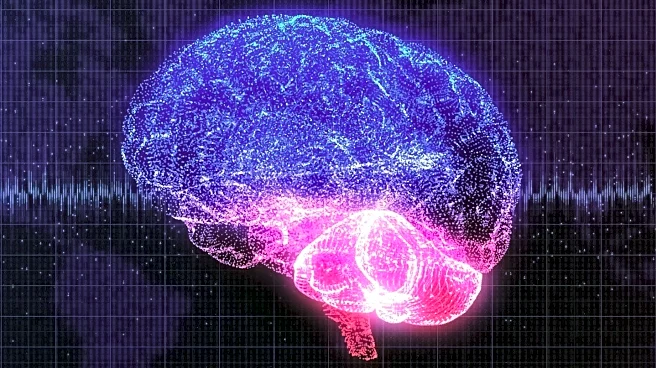What's Happening?
Researchers have developed a new diagnostic tool called the Fastball EEG test, which aims to identify early signs of Alzheimer's disease in just three minutes. This test measures brain responses to images flashed on a screen, providing a non-invasive and quick method to flag individuals who may require further checks for Alzheimer's. The Fastball EEG test has shown promise in distinguishing between healthy adults and those with mild cognitive impairment, particularly those with memory-specific issues. The test's ability to detect early Alzheimer's symptoms could shift the focus from late diagnosis to early intervention, potentially allowing for lifestyle changes and therapies that could mitigate the disease's progression.
Why It's Important?
Alzheimer's disease affects millions globally, leading to memory loss and cognitive decline. Early detection is crucial for effective intervention, and the Fastball EEG test offers a faster, less invasive alternative to traditional methods like brain scans and cerebrospinal fluid analysis. By identifying at-risk individuals earlier, healthcare providers can implement preventive measures and treatments sooner, potentially improving patient outcomes and reducing healthcare costs associated with late-stage Alzheimer's care. This innovation could transform Alzheimer's diagnosis and management, emphasizing early intervention and personalized care strategies.
What's Next?
Further studies are needed to validate the Fastball EEG test's effectiveness across diverse populations and conditions. Researchers aim to explore its potential as a standalone diagnostic tool and its integration with other emerging tests, such as blood tests for Alzheimer's-related proteins. If successful, these advancements could lead to widespread adoption of the Fastball EEG test in clinical settings, offering a more accessible and efficient method for Alzheimer's screening.










